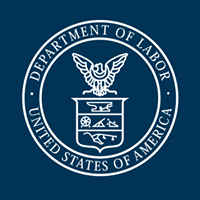In one of three opinion letters recently published by the Department of Labor (DOL), the agency addressed the issue of whether short rest breaks — in this case, taken for 15 minutes every hour for a serious health condition — are compensable under the Fair Labor Standards Act (FLSA) and concluded that they are not.
 In offering this opinion, the DOL, citing Supreme Court decisions, drew a distinction between breaks that benefit the employer and breaks that benefit the employee.
In offering this opinion, the DOL, citing Supreme Court decisions, drew a distinction between breaks that benefit the employer and breaks that benefit the employee.
The breaks would be covered by the Family and Medical Leave Act (FMLA), if the company employs 50 or more people in a 75-mile radius, but FMLA leave is non-compensable. As the letter states, ” An employee may take FMLA leave in periods of weeks, days, hours, or even less than an hour. ”
The letter further explains in length:
Short rest breaks up to 20 minutes in length ‘primarily benefit the employer.’ Sec’y of Labor v. Am. Future Sys., Inc., 873 F.3d 420, 430 (3d Cir. 2017); see also 29 C.F.R. § 785.18 (short breaks ‘promote the efficiency of the employee’); Naylor v. Securiguard, Inc., 801 F.3d 501, 505 (5th Cir. 2015) (short breaks are ‘deemed to predominantly benefit the employer by giving the company a reenergized employee’). Thus, consistent with the Supreme Court’s decision in Armour, rest breaks up to 20 minutes in length are ordinarily compensable. 29 C.F.R. § 785.18. In limited circumstances, however, short rest breaks primarily benefit the employee and therefore are not compensable. As relevant to the issues in this letter, for example, the court in Spiteri v. AT&T Holdings, Inc., 40 F. Supp. 3d 869 (E.D. Mich. 2014), confirmed that an employee was not entitled to compensation for frequent ‘accommodation breaks’ (that is, breaks to accommodate the employee’s back pain) that predominantly benefited the employee. Id. at 879. The court noted that 29 C.F.R. § 785.18 does not entitle ‘an employee to take an unlimited number of personal rest breaks during the day and be compensated for all such breaks, as long as they are less than 20 minutes in duration.’
The FLSA, issued in 1938, does not cover what constitutes compensable time, thus the need for Supreme Court interpretations. The FMLA, enacted in 1993, allows for up to 12 weeks of unpaid leave for health conditions of the employee or of the employee’s immediate family.
The letter also states: “It is important to note, however, that employees who take FMLA-protected breaks must receive as many compensable rest breaks as their coworkers receive.”
